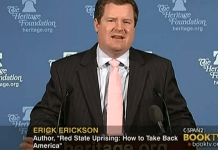Zuma’s uMkhonto weSizwe Party, with its 58 newly elected lawmakers, has announced their boycott of the parliamentary sitting. This decision stems from the party’s earlier filing of objections with the Independent Electoral Commission, alleging widespread irregularities in the national elections held last month. Despite securing just over 14% of the vote, the party, commonly known as MK, has refrained from publicly presenting evidence to substantiate its claims. In response, the commission has stated that it has addressed all objections raised.
Now, the party has taken its grievances to the Constitutional Court, seeking to overturn the commission’s declaration of the election’s fairness and to compel the president to call for a new election. This legal challenge underscores the heightened tensions surrounding the electoral process in South Africa.
The recent elections marked a significant shift in the country’s political landscape, as the ruling African National Congress (ANC) lost its parliamentary majority for the first time since the end of apartheid three decades ago. In light of this development, the ANC is now engaged in negotiations with various opposition parties to form a government of national unity.
The outcome of these negotiations holds immense importance, as it will ultimately determine who assumes the presidency of South Africa. President Cyril Ramaphosa, Zuma’s longstanding rival within the ANC, is vying for re-election for a second term, adding further intrigue to the political landscape.
The decision by Zuma’s party to boycott the parliamentary sitting reflects the deep-seated divisions and grievances within South Africa’s political arena. The allegations of electoral irregularities have cast a shadow over the legitimacy of the election results, prompting legal challenges and intensifying political tensions.
At the heart of the matter lies the question of democratic integrity and transparency in the electoral process. The allegations made by Zuma’s party raise concerns about the fairness and credibility of the election, highlighting the need for robust mechanisms to address electoral disputes and safeguard the democratic process.
The Constitutional Court’s role in adjudicating these disputes is crucial in upholding the rule of law and ensuring that democratic principles are upheld. The court’s decision will have far-reaching implications for the future of South Africa’s political landscape and the legitimacy of its governance structures.
Against this backdrop, the negotiations between the ANC and opposition parties take on added significance. The formation of a government of national unity represents a potential avenue for consensus-building and reconciliation in a deeply divided political environment.
However, the outcome of these negotiations is far from certain, as competing interests and ideological differences may pose challenges to reaching a consensus. The ANC’s efforts to secure support from opposition parties underscore the complexities of coalition politics in South Africa’s multi-party system.
Amidst these developments, President Cyril Ramaphosa’s bid for re-election adds another layer of complexity to the political landscape. As a central figure within the ANC, Ramaphosa’s leadership and policy agenda have been subject to scrutiny and debate both within the party and across the broader political spectrum.
The unfolding political drama in South Africa underscores the enduring challenges facing the country’s democratic institutions. The resolution of the electoral dispute and the formation of a new government will shape the trajectory of South Africa’s democracy and its socio-economic development in the years to come.























